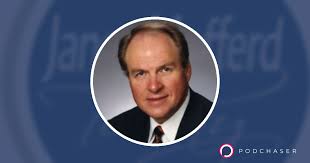What if None of it Was Ever True
In the Baptist world, Wallace Henley is a big name. He was pastor of a mega church in Houston for 20 years and has written a lot. He has been well known for decades in the Southern Baptist Convention.
He wrote a column recently reminiscing about his arrival as a young man at the Southern Baptist SW Seminary. That was in 1941. It was the largest seminary in the world at that time and for many decades to come. He said his years at the Seminary were so wonderful he enjoys returning and dialing up memories.
But, there is something that bothers him, the place feels rather empty. There are lots of parking spots and the sidewalks, once full of purposeful students, have little traffic. Enrollment at the seminary has plummeted along with that of Southern Baptists. Like everyone else he tosses in his theory about what happened and how to right the ship.
It happened, Henley thinks, because of moral and financial scandals at the seminary and across the Southern Baptists. This is merely a theory and a way to avoid what is probably the real reason for the decline. His solution has been repeated so many times it takes space better used for something else. The solution is a "revival" where everyone runs back into church and apologizes for their absence.
Henley uses the Bible to encourage himself there might be a revival and people would come streaming back into churches. His problem starts with that very Bible. What if the miracles, dead people coming back to life, heaven and hell were never true? If they were not true the parts about the coming revival are no doubt phony too. In today's world, people are bombarded with product, political and religious propaganda. This was not the case when the Bible was written. The public today is suspicious and wary. Christian propaganda sounds no different the product or political propaganda. Henley's hope for a revival of Christianity depends on the public suddenly unlearning what it has spent decades mastering. Not going to happen.
Everyone who has lived a few decades looks backwards and wants things not to have changed. When I go back and look at the campus where I, like Henley, was once a farm boy thrust into a fast moving would of many instead of a few people it was exciting. Now I go back there and can hardly recognize it. The difference between Henley and myself is my institution was a secular one that moved along with the times in science, arts and the humanities. It is still crowded with students. It does not have to depend on a revival to survive into the future.




Comments
Post a Comment